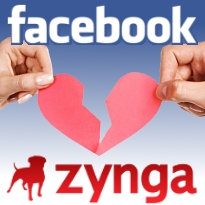 Following up on the launch earlier this month of social betting offering BetDash, Irish bookies Paddy Power have brought social slots to Facebook. Social Casino Intelligence reported that the Paddsters have demo-launched a slots app on the social network featuring half a dozen games developed by Cayetano, which Paddy acquired a year ago.
Following up on the launch earlier this month of social betting offering BetDash, Irish bookies Paddy Power have brought social slots to Facebook. Social Casino Intelligence reported that the Paddsters have demo-launched a slots app on the social network featuring half a dozen games developed by Cayetano, which Paddy acquired a year ago.
Dragonplay, the Israeli social gaming outfit behind the popular Slot City, Farm Casino and Live Holdem Poker Pro apps on the Android platform, has partnered with online privacy solutions provider TRUSTe to ensure “the utmost fairness and security” of Dragonplay’s games. The company has also tapped Center Space as third party supervisor of Dragonplay’s random number generator. In April, Dragonplay scored $14m in investment backing from Accel Partners, Entrée Capitol and Founder Collective.
ZYNGA, FACEBOOK TALK TRIAL SEPARATION
But the big social gaming news of the day came from Zynga and its former life-partner Facebook, who have effectively agreed to start seeing other people. Documents filed with the Securities Exchange Commission after the markets closed on Thursday significantly alter the five-year deal the two parties signed in May 2010. For its part, Zynga will no longer grant Facebook exclusive access to its games, enabling new titles to launch on the standalone Zynga.com platform and other social networks, and Zynga can cut Facebook off entirely from its mobile games, games from third-party developers, and games launched in China or Japan. Zynga can opt not to display Facebook ads in its games or utilize Facebook’s proprietary payment mechanism.
On the other side of the negotiating table, Facebook has ended Zynga’s most-favored-nation status, meaning Zynga can no longer use Facebook to cross-promote its games via in-game ads for Zynga.com or via emails from Facebook. And starting in April 2013, Facebook will no longer be barred from developing its own games. A Facebook rep told AllThingsD that the company was “not in the business of building games and we have no plans to do so,” but companies tend not to negotiate new rights without some thought toward eventually exercising those rights. And Facebook isn’t above subterfuge: in May of this year, Facebook said it wasn’t interested in taking the real-money gambling route, only to allow Gamesys to launch Facebook’s first real-money gambling app in the UK less than four months later.
Sticking with the real-money theme, the new deal stipulates that “if Facebook allows real money gambling games on the Facebook web site in countries where Zynga has real-money gambling games, Zynga will subsequently launch such games on the Facebook web site, if certain conditions are met by Facebook.” The filing doesn’t elaborate on these certain conditions. Last month, Zynga inked a deal with pan-European online gambling operator Bwin.party digital entertainment to launch a real-money gambling joint venture in the UK.
It’s not clear which company pushed hardest for these revisions. In their most recent earnings reports, Zynga’s contributions to Facebook’s revenues fell from 10% to 7%, but Facebook provided 80% of Zynga’s revenues. Facebook has also not been shy about revealing how Zynga’s games are falling in popularity compared to other developers like Wooga and King.com, who will now be competing with Zynga on a level playing field (on Facebook, at least). The markets have already identified who they believe stands to gain the most from this new arrangement. Zynga shares closed out the day up over 4% to $2.62 but have fallen sharply in after-hours trading, down over 12% at time of writing to $2.29. Facebook shares finished up 3.6% and have fallen less than 1% in after-hours trading.





